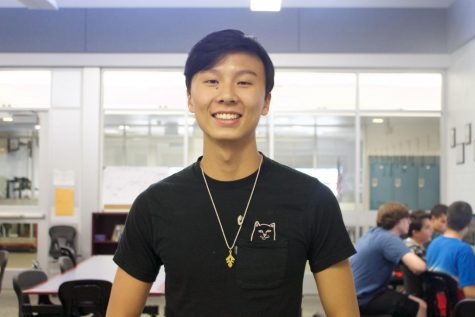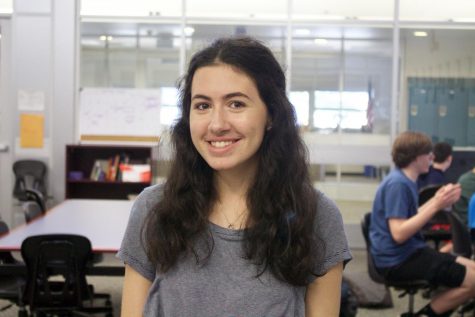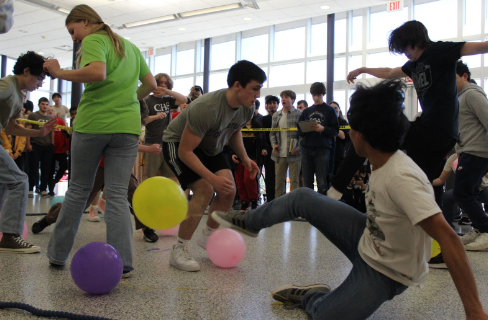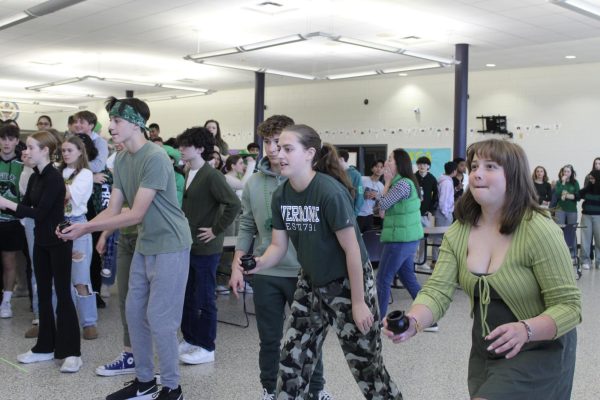School year starts with new and updated theme classes
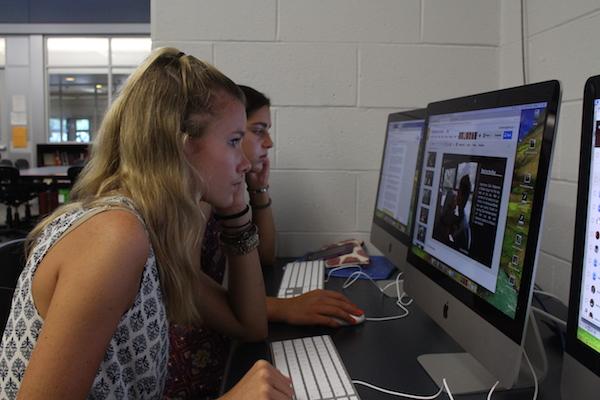
Junior Audrey Mannion of Brielle works on a photo slide show for Mass Media.
September 18, 2016
CHS opened its doors Sept. 7, welcoming in both new and returning students for another year of events, activities and classes; with the new school year came some curriculum changes.
As part of a series of curriculum adjustments, journalism teacher Andi Mulshine will teach a marking period-long journalism course called Introduction to Mass Media. This class is a reworked of the previous semester-long “journalism” sophomore course. Sophomores will take one marking period of Mass Media, as well as one marking period of Introduction to Programming. In this class, technology teacher Laura Gesin will teach sophomores the Python computer programming language.
Former mandatory junior course Media Writing was also renamed Junior Seminar and had changes made to its curriculum.
In the next three years, the previously a freshmen year elective Introduction to TV/Radio will become a sophomore year elective.
Principal James Gleason said that some specific changes, such as the moving of TV/Radio, were due to teacher requests. But as a whole, Gleason said every change was made to benefit the students.
The addition of the required Introduction to Programming course to the CHS curriculum is just one example.
“We really never had an introductory programming course, so this is an opportunity to provide all students with that experience,” Gleason said.
Gleason noted both the junior and senior programming electives were about 90 percent male. The new introductory sophomore programming course would hopefully give all students an equal opportunity to gain new experience with programming, Gleason said.
Even though the sophomore journalism course has been shortened, Mulshine said much of class will be the same.
“This year’s course will cover many of the same units. The time spent on each unit will be much shorter, obviously. As long as we get the copyright song into the mix, we’ll be OK,” Mulshine said.
The new time constraints could affect staffing at the Inkblot student newspaper, Mulshine said.
“In the past, interested students could go from sophomore journalism into junior year photojournalism, then into advanced journalism in senior year. They’ll have a lull in sophomore year when they won’t have a class. We hope it doesn’t hurt our recruitment efforts at The Inkblot. We just need to work harder to keep our sophomores coming back and growing in their jobs,” Mulshine said.
Junior Seminar is also an updated version of a previous elective class, Media Writing, and Gleason said this change will provide students with more of a choice. Teachers will have more flexibility in what they can teach Gleason said. For example, Gleason said that Junior Seminar and Digital Video teacher David Salowe would be able to teach screenwriting, as opposed to another teacher who would have the ability to focus on a different subject.
Changes were also made to Intro to TV/Radio, which is a required course for all CHS students. In three years, it will be sophomore, not a freshmen, class. Radio teacher Bill Bengle said these changes were made in order to ensure equal experience among incoming students
“With the change, the students will come into the class already having had Effective Speech, Journalism, Comm Tech, and DV. Instead of having to teach or review any of that info to freshmen, Mrs. Cornine and I can concentrate on teaching TV and Radio. Students will get more out of the class that way,” Bengle said.
In terms of costs and expenses, the new elective changes did not incite much in terms of budgetary changes, save for the future addition of new cameras for the new journalism courses. The challenge became working with faculty and the Instructional Council to make these new changes a reality, Gleason said.
“It’s one thing to say that you would like to change something. It’s another thing to fit it into the school schedule so that all students would benefit,” Gleason said.



